www.industry-asia-pacific.com
01
'22
Written on Modified on
What is Being Done at Manufacturing Sites to Reduce CO₂ Emissions?
TDK recognizes that energy-related CO₂ emissions from its manufacturing sites are a considerable environmental burden and is working proactively to reduce them worldwide. This article reports on some major environmental initiatives being undertaken at the forefronts of manufacturing.
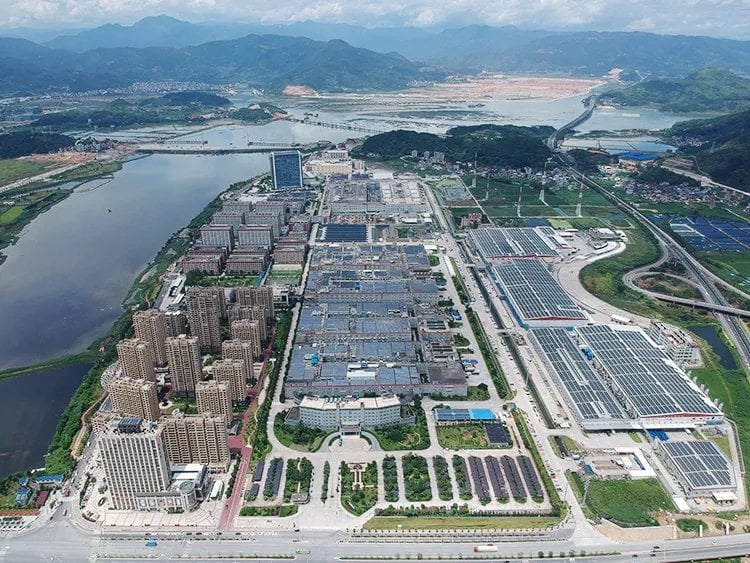
Because of the ever-increasing need to reduce carbon dioxide (CO₂) emissions to achieve a decarbonized society, it is becoming critical in the manufacturing industry to reduce CO₂ emissions at manufacturing sites by improving efficiency and adopting renewable energy sources.
China / Amperex Technology Limited (ATL)
United in its efforts to transition to “green” factories for decarbonization
ATL (Amperex Technology Limited) (China), a TDK Group company, is a lithium-ion battery supplier holding the world’s largest market share in developing and producing smartphone batteries. In addition to smartphones, ATL’s lithium-ion batteries are used worldwide in wearable devices, IoT devices, drones, electric motorcycles and household energy storage systems.
ATL has established an Energy Conservation Committee to work on environmental initiatives and carry out energy-saving actions at all of its factories. Since 2016, the company has been committed to a company-wide energy policy of transitioning to “green” factories with high efficiency and low energy consumption. In July 2017, the company obtained ISO 50001 certification, an international standard for energy management systems. In Fiscal Year 2020, ATL was recognized by the EHS (Environment, Health, and Safety) Performance Award—which evaluates safety and environmental efforts within the TDK Group—for the exceptional measures it undertook to increase efficiencies by improving its production facilities.
As one of the world’s top suppliers of lithium-ion batteries, ATL produces an enormous number of them. Managing energy conservation initiatives was becoming cumbersome when production capacity reached saturation. An additional difficulty was the limited availability of technical know-how on energy conservation involving lithium-ion, as it is a relatively new technology. ATL was able to overcome these challenges and meet its carbon emissions target by continuously improving the efficiency of its facilities without sacrificing production capacity. This results from a focus on creating “green” factories at all manufacturing sites by assembling dedicated technical teams and providing personnel and financial support.
ATL plans to implement even more environmental measures in the near future, such as expanding the use of renewable energy at its manufacturing sites, and reducing, reusing and recycling solid waste. As the world’s leading manufacturer of lithium-ion batteries, ATL is striving to reduce its carbon footprint even further.
An example of achieving higher efficiency by improving production equipment
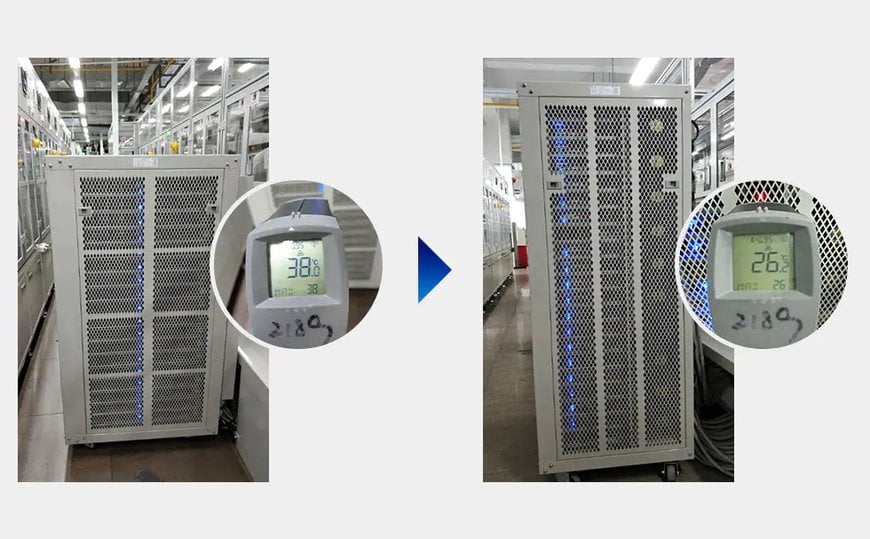
The energy consumed by air conditioning systems was reduced by recovering the electrical power that was being released as heat during the discharge process and returning it to the grid to be reused.
Japan / TDK Mikumagawa Factory
Energy conservation and cost reduction by visualizing “Monozukuri” craftsmanship
TDK’s Mikumagawa Factory was built in 1982 to manufacture videotapes. Since then, its core technology has been thin-film coating: the application of uniform, thin layers on base films. Today, its flagship products include films used as key components in the manufacturing process of multilayer ceramic capacitors and low-resistance transparent conductive films used as electrodes for light control.
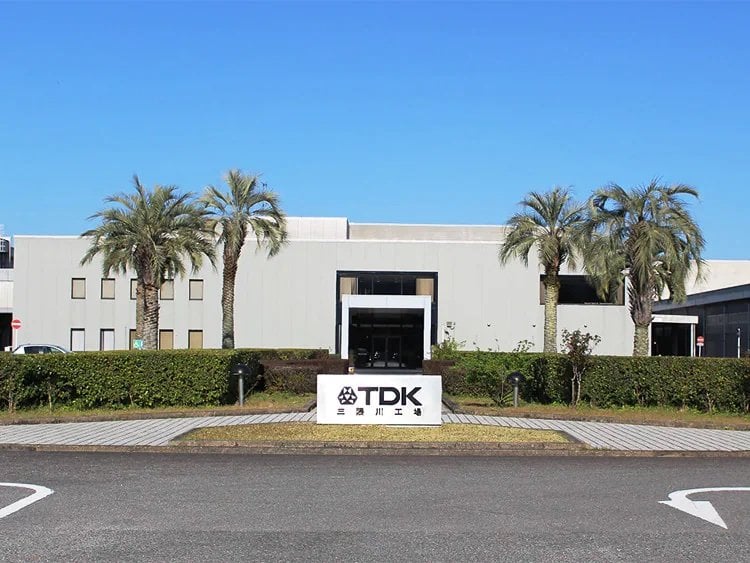
Mikumagawa Factory’s environmental measures are particularly notable for their effective reduction of CO₂, water consumption and waste. Improvements have been made by consciously linking the measures taken in every part of the manufacturing process. Specifically, as part of its carbon reduction efforts, the site has successfully reduced energy consumption and costs simultaneously without impeding production by either shutting off or turning down HVAC units—which are energy-hungry—when there is no production activity. The results in cost reduction are shared with relevant personnel monthly to give visibility to successes and raise motivation.
These efforts are supported by a system known as JABRO. JABRO is a DX (digital transformation) activity being carried out at Mikumagawa Factory and a platform for leveraging technology to improve services and productivity. By deploying large scores of sensors to the manufacturing process, end-to-end monitoring has been made possible. For example, the temperature, humidity and amount of dust inside a cleanroom can be monitored, with the slightest changes observable at a glance. This JABRO monitoring system, applied in combination with accumulated data, has resulted in effective control of the indoor climate.
Mikumagawa Factory will continue to pursue high-quality “Monozukuri” craftsmanship while enhancing environmental value as well as economic efficiencies.
Optimizing HVAC systems
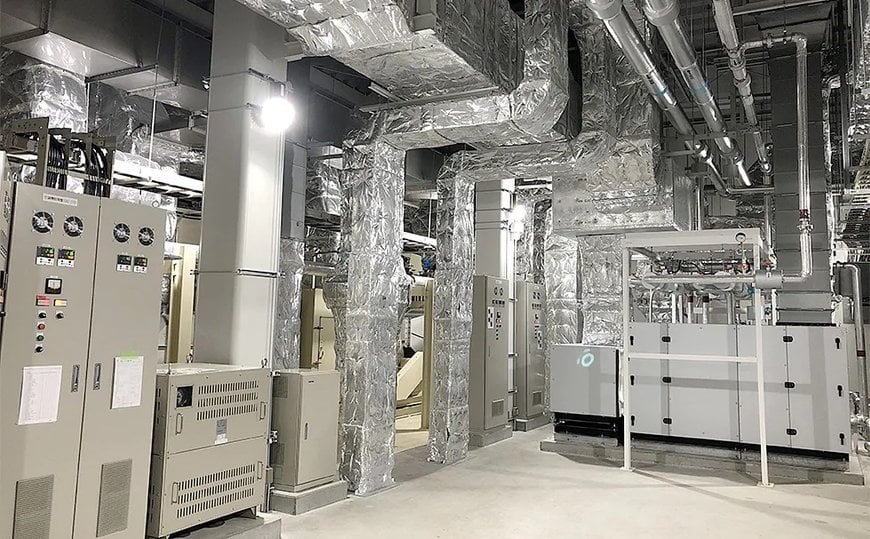
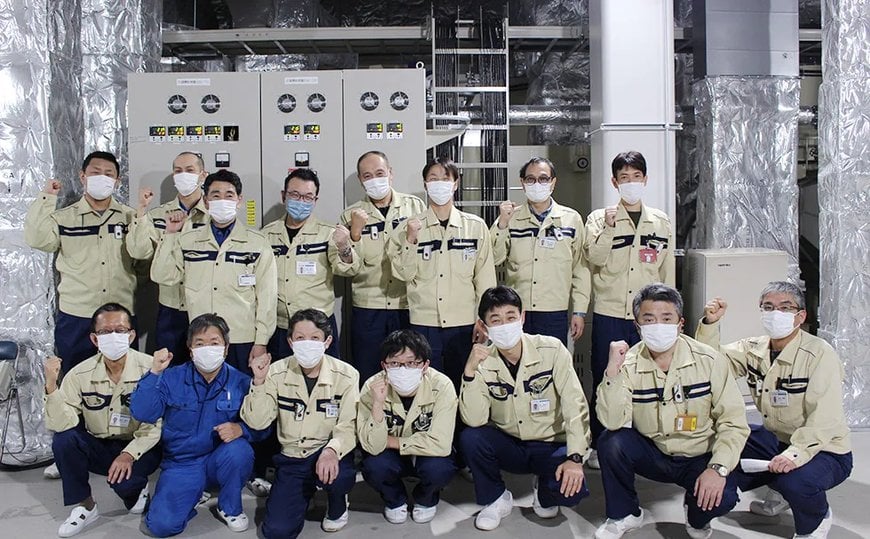
At Mikumagawa Factory, efforts are underway to save energy by optimizing the operation of HVAC systems. The factory management, production, technology, quality control and IT teams worked together to drive environmental initiatives.
Spain/TDK Electronics Málaga Plant
Aiming to achieve carbon-neutral production with 100% renewable energy
The Málaga plant of TDK Electronics (Spain), a TDK Group company, is the development and manufacturing site for power capacitors used in renewable energy generation systems, railways and industrial equipment. Power capacitors contribute to the efficient use of energy by supporting high-power equipment, power conversion and power control (power electronics).
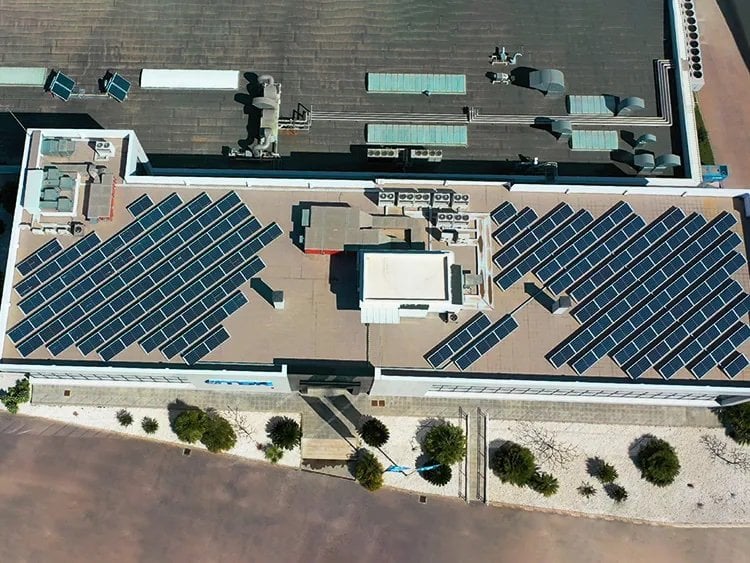
Since April 2021, the Málaga plant has been sourcing all of the electricity used in production from renewable energy. Additionally, approximately 160 solar panels have been installed on the plant’s 900 m2 rooftop. The solar power system generates around 90 megawatt-hours of solar power per year, corresponding to about 2% of the plant’s energy needs. This alone will reduce CO₂ emissions by approximately 35 tons per year. Together, these measures lead to a reduction in CO₂ emissions of around 95 percent. Charging stations for electric vehicles have also been installed on its premises, accelerating efforts to achieve carbon neutrality.
In addition to decarbonization, the Málaga site is actively involved in energy and resource conservation in a variety of ways. For example, implementing a water recovery system encompassing air conditioning units and compressors made it possible to recover up to 22% of the water from air conditioning, reducing water consumption as well as energy consumption of the water cooling system. Additionally, solar thermal collectors have been installed to heat the water in the water supply facility. Gas heaters were used in the past; switching to solar thermal collectors is expected to save 18,000 kilowatt-hours of energy every year.
The Málaga plant aims to achieve carbon neutrality by continuing its commitment to energy conservation and environmentally-friendly manufacturing.
Rooftop of the Málaga plant
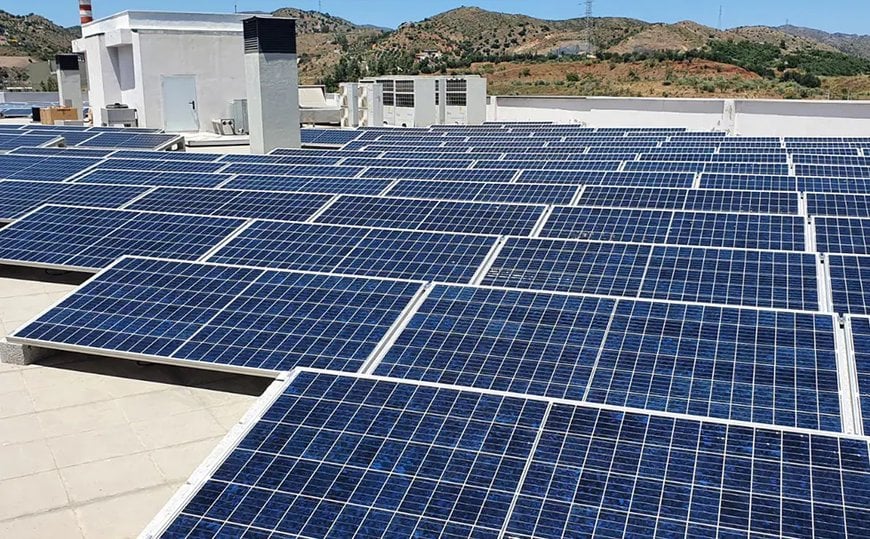
Approximately 160 solar panels have been installed on the plant’s 900 m2 rooftop.
Toward further progress in addressing climate change
TDK is promoting various environmental efforts throughout the group, and these are led by Safety & Environment Group in Sustainability Promotion Headquarters. In addition to reducing greenhouse gas emissions at the manufacturing sites as described above, TDK is also working to mitigate environmental impact from a product lifecycle perspective—from the stages of raw materials, logistics and product use to wastes for recycling.

Satoka Sugiyama
Safety & Environment Group
Sustainability Promotion HQ
TDK Corporation
Satoka Sugiyama of Safety & Environment Group explains the significance of TDK’s environmental initiatives. “We are actively addressing sustainability issues, including measures to address climate change. In particular, to reduce CO₂ and other greenhouse gas emissions, we have set specific targets and measures for promoting energy rationalization and increasing the use of renewable energy at each of our sites. We are making steady progress toward realizing a decarbonized society. Furthermore, through TDK’s continuous efforts to improve product energy efficiency, we are also contributing to the reduction of CO₂ emissions from the use of electronic products that incorporate these products as components.”
Sugiyama continues, “Toward the realization of a sustainable society, clean and high-efficiency energy solutions are positioned as an important business opportunity strategy of TDK Group that embodies our belief in ‘growing while creating social value.’ We will continue to work hard for a sustainable society through promoting meaningful initiatives in the future.”
www.tdk.com

